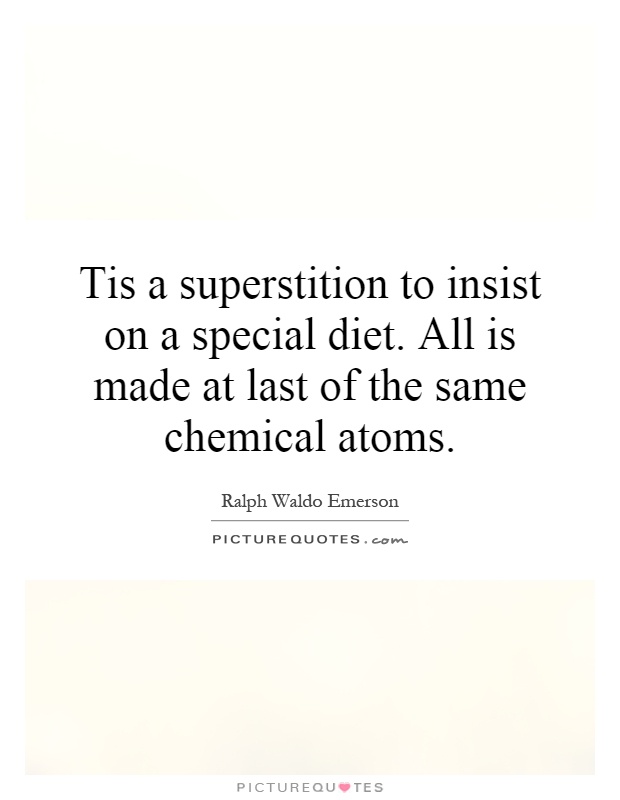Tis a superstition to insist on a special diet. All is made at last of the same chemical atoms

Tis a superstition to insist on a special diet. All is made at last of the same chemical atoms
Ralph Waldo Emerson, a renowned American essayist, lecturer, and poet, was known for his transcendentalist philosophy that emphasized the interconnectedness of all things in the universe. In his essay "Self-Reliance," Emerson explores the idea that insisting on a special diet based on superstition is ultimately futile, as all living beings are made of the same chemical atoms.Emerson believed that individuals should trust their own instincts and intuition rather than blindly following societal norms or superstitions. He argued that the universe is governed by natural laws and that all living beings are interconnected through a shared essence. In this context, insisting on a special diet based on superstition goes against the natural order of things and disrupts the harmony of the universe.
Emerson's belief in the unity of all things is reflected in his assertion that "all is made at last of the same chemical atoms." This statement underscores the idea that all living beings are fundamentally the same at a molecular level, regardless of superficial differences such as race, gender, or dietary preferences. By emphasizing the commonality of all living beings, Emerson challenges the notion that certain diets are inherently superior or more virtuous than others.
Furthermore, Emerson's rejection of superstition in favor of self-reliance aligns with his broader philosophy of individualism and personal growth. He believed that individuals should cultivate their own unique talents and abilities rather than conforming to external expectations or beliefs. In the context of diet, this means trusting in one's own body and intuition to guide food choices rather than adhering to arbitrary rules or restrictions based on superstition.












 Friendship Quotes
Friendship Quotes Love Quotes
Love Quotes Life Quotes
Life Quotes Funny Quotes
Funny Quotes Motivational Quotes
Motivational Quotes Inspirational Quotes
Inspirational Quotes